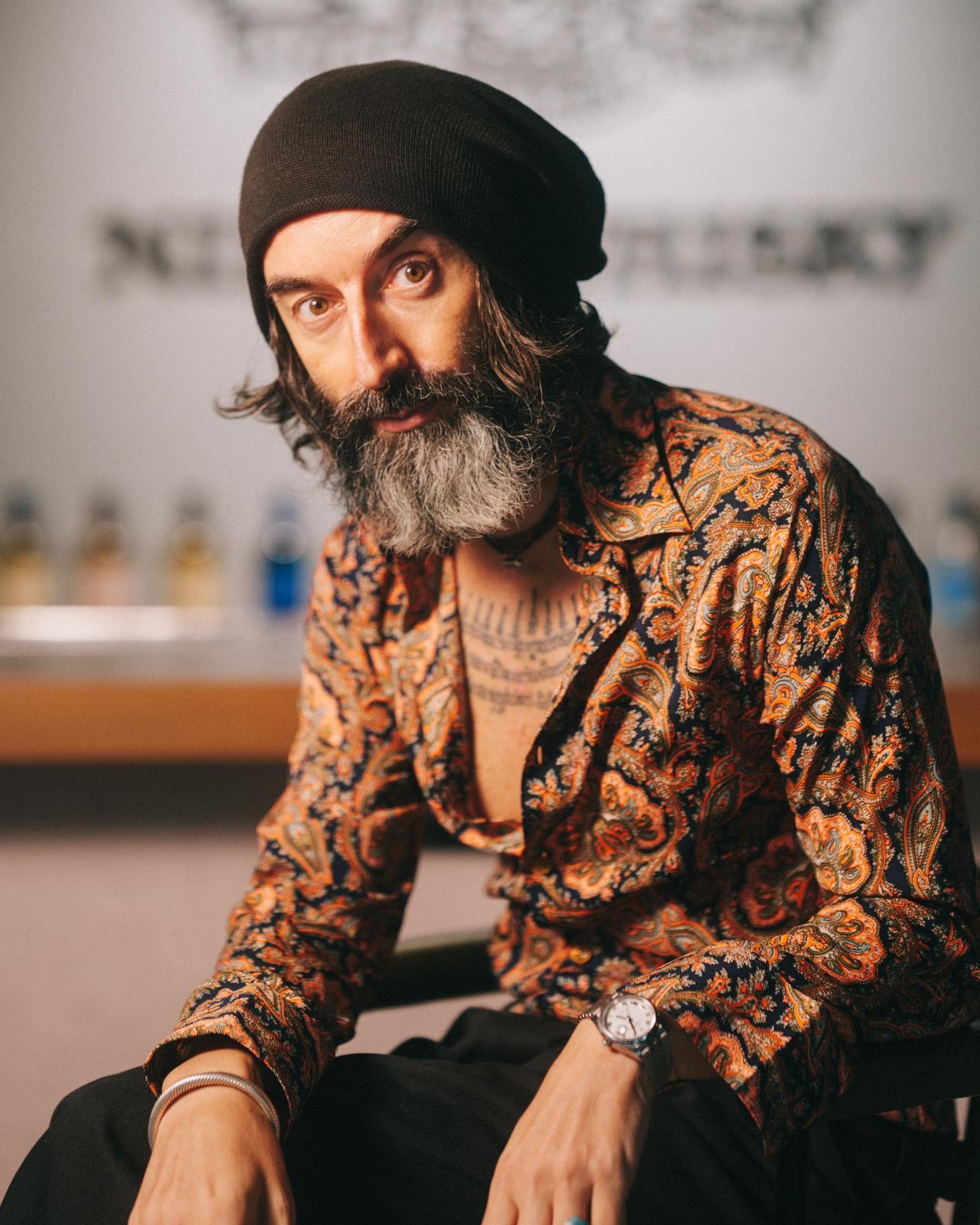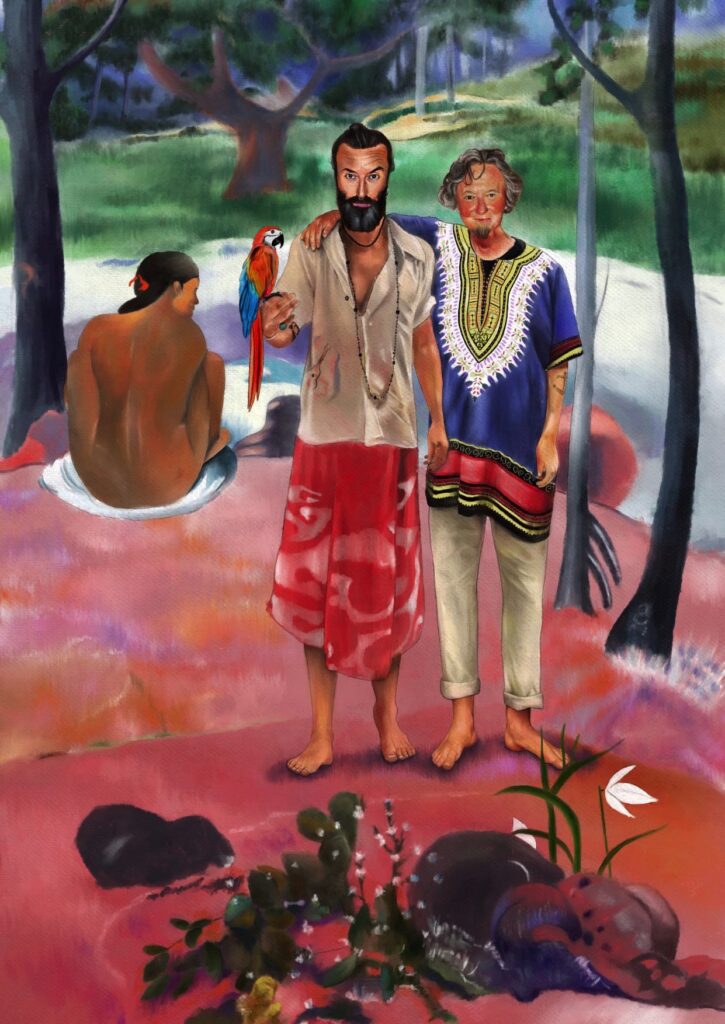Stan Vadrna has spent over 30 years living, breathing, and reimagining what it truly means to be hospitable—not just in action, but in essence. As the Nikka Brand Global Hospitality Advocate and founder of VADRNA Groove Vibrations, he creates and shares human-centered practices that elevate the guest experience and nurture more hospitable hearts, minds, and bodies. From Bratislava to Jaipur to Tokyo, his work is grounded in presence, mutual respect, and our shared humanity. He is currently writing a book on MUHINSHU – No Guest, No Host, a timeless philosophy that reminds us hospitality is not a role we play—it’s who we are. His mission is simple but powerful: to make this world a more hospitable place, one human at a time.
The Journey Into Hospitality
You’re recognized as a global thought leader in hospitality. How did your journey in this field begin, and what inspired your unique approach to service and hospitality?
I was born into hospitality long before I ever stepped behind a bar. My earliest memories are of my parents hosting guests in our living room. They weren’t in the industry, but they embodied what true hospitality means—creating a space where people felt welcomed, nourished, and seen. I didn’t realize it at the time, but that was my first masterclass. Then, there was my grandfather. He was a head conductor on international trains. When I traveled with him, he’d leave me in the dining cars, where the head waiters looked after me. I was mesmerized by these men—elegant, charismatic, moving with sprezzatura, storytelling, the way they made people feel. It was like watching a perfectly choreographed play, except it was real. That stayed with me.
Later, I was on a path to becoming a professional waiter on international dining cars (one of my dreams was to be a waiter on the Orient Express), but instead, after years of traveling, I became the ‘Orient Express’ itself—a bridge between East and West, carrying stories, shakers, flavors, and philosophies across cultures. My journey wasn’t linear. I was deeply involved in contemporary performance art, photography, and theater, all of which shaped my understanding of presence, observation, and the importance of the process. I spent a couple of years as a tour photographer, traveling with a band across Europe, capturing raw, unfiltered human emotions. I learned the art of being present, observing without interfering, sensing the energy of a moment. I learned to see beyond the obvious, to feel the energy of a room, to read people. That foundation was crucial for my later journey into hospitality.
Then came New York, 2005. I was bartending, working insane hours, trying to please everyone but myself. And then—boom. Heart attack. 29 years old. The first big wake-up call. But, of course, I didn’t change immediately. Life went on, and fast forward to 2014, I collapsed again. This time, in Bratislava, at home, in the shower, after a couple of months of being constantly on the road running Nikka whisky tastings and Japanese bartending workshops across the globe. Overworked. Exhausted. Running on stress and obligation. The ambulance came, they revived me, and I remember looking at the doctor and saying:
“If I make it through this night, everything changes.”
And I kept my word. I became sober. I went raw vegan. I went back to my daily zazen meditation practice and started practicing Chi Kung and later on, Muay Thai. My whole life shifted. From that moment on, well-being came first, then family, then work—not the other way around. That was when I truly understood hospitality is not just about taking care of guests—it’s about taking care of yourself first. If you’re burned out, drained, disconnected, how can you give real hospitality?
More than anything, my path was shaped by my own spiritual awakening and exploration of headlessness—the realization that the ego dissolves in true presence, that the space we create for others is an extension of who we are. This led me to develop Headless Heartfelt Hospitality (HEA HEA HO), a way of being that transcends service… the way of serving beyond ego. It’s about being fully available to the guest while remaining deeply rooted in your true self. This is where I stand today. Every workshop, every training, every guest shift I do—it all comes back to this: hospitality is not a job, it’s a way of being.

Hospitality is a universal concept but interpreted differently across cultures. How would you define hospitality in its purest form?
Hospitality, at its core, is about recognition. It’s about seeing another human being—not just as a customer, not just as a guest, but as someone who, in that moment, deserves your full presence, care, and respect. It’s about mutual appreciation and respect because true hospitality isn’t a one-way street—it’s an exchange. For me, hospitality is the practice of recognizing the humanity in others—and in doing so, recognizing it in yourself.
Hospitality, in its purest form, is recognition. It’s the moment when two human beings meet, and in that instant, they truly see each other. It’s not about serving, not about transactions—it’s about mutual appreciation. Different cultures have their own expressions of this: In Japan, it’s omotenashi—a silent, intuitive hospitality that anticipates needs before they’re even spoken. In Hawaii, it’s Aloha, which literally means “no separation”—welcoming someone as family, as part of the same breath of life. In India, it’s Atithi Devo Bhava—”The Guest is God,” an ethos of honoring every visitor with deep respect. Among the Bedouins of the Middle East, it’s about radical generosity—offering food, shelter, and care, even to a stranger in the desert.
At its core, hospitality is about being present. It’s about making people feel, even for a fleeting moment, that they matter. This is why I resonate so deeply with MUHINSHU—No Guest, No Host from the Japanese tea ceremony. The moment you drop the illusion of roles, of server and served, of giver and receiver—hospitality transforms. You’re not “serving” someone. You’re sharing a moment.
Philosophies That Shape Hospitality
The Japanese concept of ichi-go ichi-e (“one time, one meeting”) has been central to your work. How do you incorporate this philosophy into your daily interactions, both personally and professionally?
For me, ichi-go ichi-e is life itself. Every cocktail I make, every workshop I teach, every interaction I have—I approach it with the awareness that this is a once-in-a-lifetime moment.
If I’m shaking a cocktail, I shake it like it’s the last one I’ll ever make. If I’m speaking to someone, I listen as if there’s nothing else in the world but that conversation. That’s ichi-go ichi-e.
Because the truth is, there is no next time. There is only now. It’s about honoring the now—because once it’s gone, it’s gone forever.

Kazuo Uyeda’s approach to bartending and hospitality is legendary. How has his philosophy influenced your perspective on service and connection?
He also reinforced what I now consider essential: humility, guest-centric service, and mutual respect. He introduced me to the world of Japanese whisky and deepened my understanding of analog craftsmanship. His lessons stay with me in everything I do, from the way I stir a cocktail to the way I run a workshop.
Mindfulness, Presence, and Service
You emphasize mindfulness and presence in hospitality. How do you teach or demonstrate these principles to others in the industry?
In my workshops, I guide participants through headless experiments, where they lose the sense of self and realize that true hospitality is about being an open space for others. Hospitality is not just about serving drinks. It’s about creating an atmosphere where people feel truly welcome. And that starts with how we show up. Real mindfulness isn’t about sitting in meditation—it’s about being fully there in every shake, every pour, every guest interaction. It’s about aliveness.
Having spent significant time in Japan, what lessons have you learned about their approach to hospitality that you believe the global industry can benefit from?
Japan taught me that hospitality is not a performance—it’s a way of life.
One of the biggest lessons is the importance of anticipation—knowing what someone needs before they ask for it. This is why Japanese hospitality feels effortless: it comes from a place of deep attentiveness, not from scripted service.
Another lesson is respect for the space. In Japan, every detail matters—from the layout of the room to the way a drink is placed on the table. The space itself is part of the hospitality.
Japan also taught me the beauty of restraint. True hospitality isn’t about overwhelming someone with attention—it’s about knowing when to step forward and when to step back.
The biggest lesson? Hospitality isn’t about “serving” guests—it’s about honoring them. Japan showed me the power of silence in service—how sometimes the most profound hospitality isn’t in words, but in how you move, how you present. It taught me respect for the process—that craftsmanship isn’t about speed, it’s about dedication. And that no detail is too small; from the way a towel is folded to how a glass is set on the bar, everything matters.



